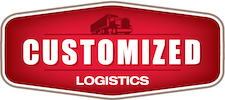Preventative Maintenance (PM) is the key to keeping any vehicle in good, working condition. This is especially the case for large, commercial vehicles like tractor-trailers or 18-wheelers. When a truck is inspected, maintained and timely repairs are made, large problems, expensive emergency repairs, accidents and violations can be more easily avoided. If you are in the business, either as an owner/operator or by leasing your truck and services to a company, it is important that you understand the basics of PM and what type of records you need to keep. This can save you money and potentially protect your business.
Where to Begin With Preventative Tractor Trailer Maintenance
Each vehicle will have different needs in terms of preventative maintenance. The key is to work with your mechanic to determine what plan is the most important for your particular vehicle. Some of the more important things to consider are:
- Grease Fittings – Regularly greasing fittings will keep the vehicle operating smoothly.
- Check Fluid Levels – Low fluids can lead to big problems. Luckily, most fluid levels are simple to check and note on your own.
- Brake Inspection – While brakes are expensive for large trucks, catching brake problems early can reduce the costs associated with replacement.
- Axel Alignment – A well-aligned truck can be one of the biggest fuel savers there is, so don’t ignore this important step.
- Clean Electrical Connections – When corrosion is present, you can experience a voided warranty on electrical components.
- Follow-Up on Scheduled Appointments – Whether it is an oil change, filter change or any other scheduled maintenance task, don’t let these fall by the wayside.
PM Schedules: Get Organized
Vehicle maintenance is usually done by following a PM schedule for services. While there are many different ways of approaching this, the most common way is with an alphabetized list of the most commonly used maintenance tasks.
For instance,Maintenance Category A includes very regular necessary safety checks, such as checking tire condition and pressure, lights, brakes and fluids, usually between 1,500 and 2,500 miles on light vehicles, and between 5,000 and 10,000 miles on medium- and heavy-duty vehicles.
Slightly less regularly, would be Maintenance Category B, which includes all of the above, in addition to oil and filter changes and more in-depth checks of the engine. It is prudent to include a download of the electronic control module (ECM) and any reports of trouble codes or problems from the ECM. This is generally done between 3,000 to 5,000 for light-duty vehicles and 10,000 to 20,000 for medium- and heavy-duty vehicles.
Maintenance Category Cshould include all of the above, plus more extensive annual maintenance and services to get your vehicle back in tip-top shape. These may include alignment, DOT annual and driveline inspections, component replacements and more. It is recommended to complete these tasks every 11 to 12 months.
TheMaintenance Category Dcategory should be reserved for the most complex services, such as transmission repairs, and full rebuilds, but can also include seasonal work, such as winterization services.
FMCSA Record Keeping
It is important that you keep records of most completed maintenance tasks. If you happen to be audited, you will need to prove the tasks were completed when required. Check the laws in your state, also, to make sure you are in compliance, but in general, you will want to record:
- Fleet number (if you utilize one),
- Make, model, and year of your vehicle,
- VIN (vehicle identification number),
- Tire size and fill,
- Carrier information (if you are not driving independently),
- A maintenance schedule detailing each task completed and when it was last done.
While the idea of tracking every maintenance task may be a bit daunting, once you have a plan in place, it is not as difficult as you may think. The most important thing is to stay on top of the maintenance and not fall behind. Once you have the plan in motion, keeping it going is easy. You will appreciate having a vehicle that is always in good repair and will be amazed by you how much money you save over the life of your vehicle.
